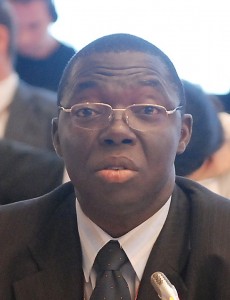Environmentalists are seeking the establishment of a legal framework that supports the mainstreaming of climate change scenario into states’ development plans and strategies. They believe that this will go a long way towards curbing how the phenomenon impacts the various sectors of the economy.

According to them, adaptation policies need to be an integral part of government initiatives, given the cross-cutting nature of the impact of climate change. They agreed that planning and budget ministries of government should embark on human capacity and infrastructure building for all aspects of mainstreaming climate change.
The submissions were part of a communiqué issued after a two-day training workshop of State Planners/Budget Officers on Mainstreaming Climate Change into Planning Process in the South-South geo-political zone held recently in Calabar, Cross River State. The forum held at the instance of the Department of Climate Change of the Federal Ministry of Environment and National Planning Commission in collaboration with the United Nations Development Programme (UNDP), and facilitated by the Economic Policy Analysis Centre (EPAC).
Participants agreed that funding mechanism and institutional framework are weak and there is need for establishment of a coordinating institution or commission to oversee the mainstreaming of climate change into development activities at the national level.
The stakeholders also recommended that appropriate methods should be deployed for development of functional and sustainable database to support climate change mainstreaming. A system of dissemination of climate change data should also be put in place, they added.
They noted that an elaborate advocacy and awareness programme on climate change should be embarked upon, using electronic and print media, advocacy workshops, town criers, grassroots information translated into local languages, and interfacing with school curricula.
The participants urged government to promote clean development mechanism, activities that will enhance renewable energy and efficiency through incentives in solar and wind energy development. They called on government to develop, access and deploy appropriate technologies for sustainable waste management practices.
Permanent Secretary, Federal Ministry of Environment, Rabi Jimeta, who was represented by the Director, Climate Change Department of the Ministry, Samuel Adejuwon, said that funding for climate change activities could be leveraged nationally from both federal and state governments to argument pockets of resources available internationally. Hence, the need to ensure better understanding and implementation of the various budgetary and planning instruments that are available to address the risks related to impacts of climate change and the sustainable development implications.
She noted that the country has some peculiar characteristics, making it vulnerable to the impacts of climate change. For instance, the country’s geographical area of approximately 924,000 square kilometres spreading across different ecological zones has made a shift in climate more noticeable in Nigeria than any other African country south of Sahara.
Her words: “This, invariably, is leading to the rapid Southern expansion of the Sahara Desert with associated water stress and the increased incidences of drought and desertification and aggravated decline in arable land and the consequent low agricultural yields in the country.
“On the other hand, the coastal region of the southern part of the country has been under consistent threatening by marine transgression and coastal erosion in the southern part of the country. The zone stretching about 853 kilometers along the Atlantic Ocean houses more than 50 million Nigerians and large economic infrastructure, especially oil and gas facilities critical to the country’s economy.”
She called for firm checks on the use of resources particularly land to prevent imminent land crisis, especially for agriculture.
“The population is growing very fast with concomitant demand for resources in the environment. These have implications on the physical environment as the desert is vastly encroaching in the north and erosion is becoming aggravated in the south due to climate change phenomenon. It is important that the country addresses all of these through national implementation of climate change activities to assist it in the fulfilment of its commitment under the United Nations Framework Convention on Climate Change.
Minister/Deputy Chairman, National Planning Commission (NPC), Suleiman Olarenwaju Abubakar, made a case for the development of new policy strategies to mitigate challenges associated with climate change to meet commitments to the provisions of the Kyoto Protocols, especially as it relates to adaptation and mitigation measures.
Represented by the Acting Director, Youth Development, Falilat Abdul-Raheem, he said that the government has concluded the development of national infrastructure master plan to provide a coordinated road map for the climate change resilient infrastructure. He also disclosed that the government has undertaken the review of the performance of the first National Implementation Plan (NIP) of the Nigeria Vision 20:2020 and is determined to jointly develop strategies that will further strengthen the second national implementation plan taking into consideration climate change related issues.
The EPAC, represented by Segun Ojebiyi who set the tone of the workshop, said the aim is to provide advocacy on the imperatives of mainstreaming climate change into South-South states’ development plans.
The programme was expected to provide practical guide to policy makers and climate change champions, especially the planning/budget offices and non- state actors on the need to mainstream climate change into development plans and strategies as part of overarching measures to deal with impending threats of climate changes in Nigeria.
The event was attended by about 41 participants, which included representatives of state planning and budget offices and non-state actors.
